Search the Special Collections and Archives Portal
Search Results
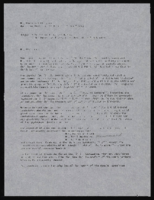
Appointment of Executive Director for the Economic Opportunity Board of Clark County: correspondence and documents
Date
Archival Collection
Description
From the Clark County Economic Opportunity Board Records -- Series I. Administrative. This folder contains correspondence and documents relating to the appointment of an Executive Director for the Economic Opportunity Board of Clark County during 1965 and 1966.
Text
Hamilton, Carolyn V.
Carolyn V. Hamilton is a former Las Vegas advertising executive and graphic designer. Born and raised in Seattle, Washington, Hamilton left her hometown in 1964 to be a Playboy Bunny in Detroit, Michigan. After obtaining a degree in commercial art, Hamilton worked in advertising in Los Angeles, California before relocating to Las Vegas, Nevada in 1973. Hamilton continued her career in Las Vegas at Jerry May Advertising, but when that firm dissolved in late 1973, she began working as a cocktail waitress at the newly-opened MGM Grand Hotel & Casino.
Person
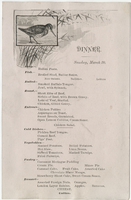
Burnett House, dinner menu, Sunday, March 30th, year unknown
Date
Archival Collection
Description
Text
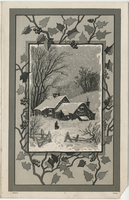
Dunlap house dinner menu, Sunday, June 3, 1883
Date
Archival Collection
Description
Text
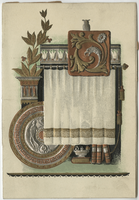
Windsor Hotel, menu, Sunday, August 26, 1883
Date
Archival Collection
Description
Text
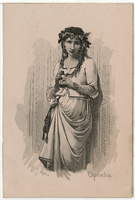
Sweet's Hotel, five o'clock dinner menu, Sunday, December 21, 1884
Date
Archival Collection
Description
Text
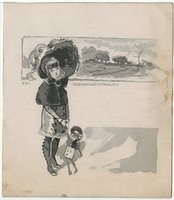
Exchange Hotel, menu, Sunday, December 28, 1884
Date
Archival Collection
Description
Text
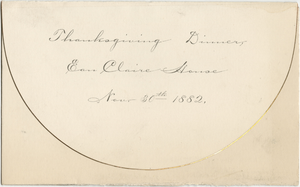
Thanksgiving dinner menu, November 30, 1882, Eau Claire House
Date
Archival Collection
Description
Text

Windsor Hotel, dinner menu, Sunday, June 24, 1883
Date
Archival Collection
Description
Text
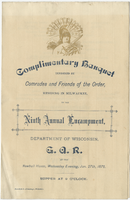
Menu for a complimentary banquet for the Ninth Annual Encampment of the Grand Army of the Republic, Department of Wisconsin, Wednesday, January 27, 1875 at the Newhall House
Date
Archival Collection
Description
Text
